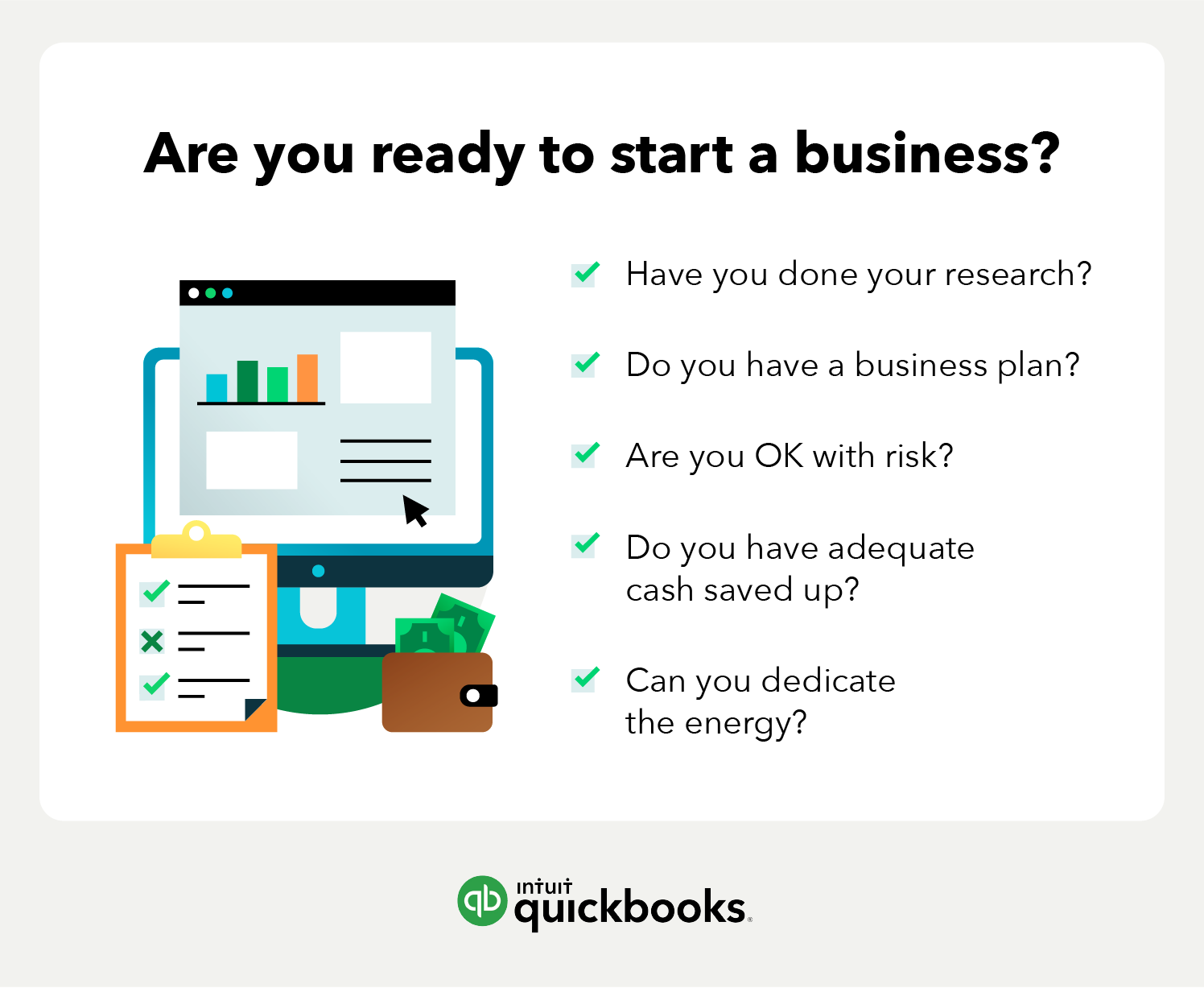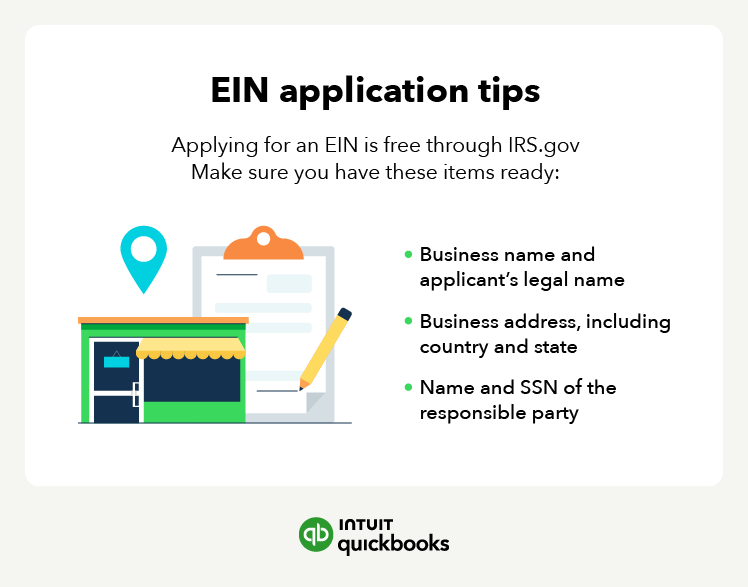Ready to turn your business vision into reality in the Last Frontier? Whether you're a lifelong Alaskan or new to the state, starting a business here is an exciting journey. From funding and registration to navigating insurance and finding tax incentives, we'll be your guide to information and resources geared especially for entrepreneurs in Alaska.

How to start a business in Alaska in 14 steps (2026 guide)
Why start a business in Alaska in 2026?
Over 99% of Alaska's businesses fall into the small business category. And it’s no wonder why. The state offers a thriving business environment for a variety of reasons, including state funding programs like the $59 Million Financing Program allocating funds for private economic development. It’s also a tax-friendly state. So much so that the 2025 Tax Foundation report ranked Alaska as the third most favorable state for entrepreneurs. There is no state income tax for individuals, and S-corporations and LLCs may qualify for additional exemptions, making “The Last Frontier” an attractive location for businesses. Wondering how to start a business in Alaska? Our small business guide will walk you through the steps.
Here are the topics we’ll cover in this step-by-step guide:
- 14 steps to starting a business in Alaska
- Step 1: Decide what type of industry is best for your business
- Step 2: Conduct industry research
- Step 3: Create a business plan
- Step 4: Choose your business entity: Types of business entities in Alaska
- Step 5: Secure funds: Alaska small business funding, loans, and grants
- Step 6: Choose your Alaska business name and Alaska DBA
- Step 7: Pick a business location in Alaska
- Step 8: Find an Alaska registered agent
- Step 9: Get an Alaska EIN and file your tax and employer identification documents
- Step 10: Register as a small business in Alaska
- Step 11: Register for your business license and permits in Alaska
- Step 12: Secure insurance for your Alaska small business
- Step 13: Prepare to pay taxes on your business in Alaska
- Step 14: Set up your business bank account
- Additional resources to get your business started
- Frequently asked questions
14 steps to starting a business in Alaska
Launching a business is an adventure, full of opportunities to learn, grow, and make your mark on the world. Below we break down each step, from refining your idea to setting up a foundation for growth. With small business resources and insights tailored to Alaska, you’ll be prepared for success.
Step 1. Decide what type of industry is best for your business
Choose a business type that aligns with Alaska’s diverse economy, for example, something that fits the tourism, construction, or oil and gas sectors. Focus on your strengths and expertise, and consider the demand for your chosen industry in your location to find the best fit for success.
Not sure where to start? Begin by exploring a variety of small business ideas to spark inspiration.
Step 2. Conduct research in your industry
Reach out to a local business group, chamber of commerce, or the Alaska Small Business Development Center (SBDC), all of which offer free assistance for new business owners. Analyze market trends, conduct a competitive analysis, and determine your unique service offerings or product propositions. Prominent industries in Alaska include:
- Fisheries, owing to the state’s vast coastline and rich fishing heritage.
- Storage facilities, thanks to Alaska’s remote location and logistical challenges.
- Tourism outfits—including guided trips, equipment rentals, and lodging services—which attract adventure-seekers from across the globe.
Step 3. Create a business plan
Start your business in Alaska by creating a detailed business plan that outlines your company, marketing, financials, and mission statement.
A business plan is essentially a roadmap for your company's success. It details your goals, strategies, and financial projections, helping you secure funding, attract investors, and guide your decision-making.
A comprehensive business plan typically includes the following key sections:
- Executive summary: Provide a concise overview of your business and its goals.
- Company description: Detail your company's mission, history, and objectives.
- Market research and potential: Analyze your target market and industry trends.
- Competitive analysis: Assess your competitors and your unique advantages.
- Products and services: Describe your offerings and their benefits.
- Marketing and sales: Include your strategies for reaching and retaining customers.
- Business financials: Make financial projections, including income statements and cash flow forecasts.
- Management and leadership: Share an overview of your team's expertise and experience.
- Funding request: Detail your funding needs and how you'll use the funds.
- Appendix: Add supporting documents, such as market research data or financial statements.
Invest the time to create a well-crafted business plan. It will help you gain clarity on your business goals, attract potential investors, and set your new company up for success. A free business plan template can help you get started. The Alaska Small Business Development Center is also a good resource for no-cost business plan guidance and support.

Step 4: Choose your business entity: Types of business entities in Alaska
Business entity structures are critical for the operation, liability, tax implications, and overall formation process. Choose one of these structures for your business:
Sole Proprietorship
A business owned and operated by one person, with no legal distinction between the owner and the business.
General Partnership
A business owned by two or more people who share profits, losses, and management responsibilities.
Corporation
A legal entity separate from its owners, with shareholders who have limited liability for the company's debts and obligations.
Limited Liability Company (LLC)
A hybrid business structure combining the limited liability of a corporation with the tax flexibility of a partnership. Learn more about LLCs.
Step 5: Secure funds: Alaska small business funding, loans, and grants
Figure out how you'll fund your venture. Startup costs can vary, but you'll likely need to cover expenses like a $50 business license and registration fees (up to $250). Your overall funding needs will depend on a variety of factors like your business structure, industry, equipment, supplies, and specific goals. To help you get started, here's a rundown of some common funding options for Alaska entrepreneurs:
Expanding on the above funding options are Alaska-specific resources such as the following:
USDA Alaska rural business development grants
These rounds of grant funding through the USDA open on a rolling, deadline basis, offering business opportunities and enterprise grants to those in the state’s rural areas.
Additional Alaska resources
- The state division of investments offers several State of Alaska loan and microloan programs, depending on your business niche.
- Local nonprofit groups like the Juneau Economic Council may offer funding opportunities depending on your location and industry.
- Any southeastern Alaska business can apply for a Spruce Root business loan.
- The University of Alaska Fairbanks’ Alaska Federal And State Technology (FAST) Partnership Program is free. It helps entrepreneurs gain grant funding through the Alaska SBIR/STTR Grant Program, which includes State Grant Funds for Federal Small Business Innovation Research (SBIR) and Small Business Technology Transfer (STTR).
Step 6: Choose your Alaska business name and Alaska DBA
Select a unique, memorable business name, and make sure it’s available for use and complies with the state’s business naming requirements. To do so, conduct a search with the Department of Commerce, Community, and Economic Development. The name you choose for your business should tell potential customers who you are and what products or services you offer.
Short for “Doing Business As,” a DBA allows you to operate under a name different from your legal name. Basically, if you want to create a brand with a more descriptive name representative of your products, you can use a DBA — also referred to as an AKA or trade name — to branch out in your business. While not mandatory in Alaska, you’ll need a DBA if you have multiple businesses under your sole proprietorship, general partnership, LLC, or corporation.
Reserve your business name
To reserve and register your business name in Alaska, you’ll need to have a business license, fill out the name reservation form, and pay a $25 fee. This protects your business name for up to 120 days.
Register your business name
To register your business name, you’ll need to have a current business license in the state. Then, fill out the registration form and pay a $25 fee. This protects your business for five years.
Filing a DBA (Doing Business As)
When filing a DBA, you’ll go through the same name reservation process, but note that a separate business license is required for each DBA you operate or advertise under. Learn more about DBAs and the pros and cons about getting one.
Step 7: Pick a business location in Alaska
Planning on starting a freelance LLC in Homer? Or maybe you're looking for a small retail space in one of the bigger cities like Anchorage or Juneau to attract downtown foot traffic? The location you choose for your business will impact everything from your operating costs and tax considerations to how easily customers and employees can reach you.
Before you decide on a space, check with your local municipality to determine any needed licenses and permits. Depending on your type of business, you may also opt to run it from your home, which could keep costs down.
If you're looking for space in a metropolitan area, however, you'll want to consider factors such as local business regulations, zoning laws, and potential incentives offered by different localities. Here’s an overview of the major business areas in Alaska.
Anchorage
Anchorage offers a strategic location with access to major roads, an international airport, and a major port, making it easily accessible for transportation and logistics. The city's diverse economy provides a wide range of property options, both downtown and in suburban areas, to suit your business needs. Due to strict zoning enforcement, review zoning maps and contact the Anchorage Department of Community Development to ensure your chosen location allows your business activity.
Juneau
Downtown Juneau comes with premium space costs. Mendenhall Valley offers a mix of commercial and residential areas at a more affordable rate. If you’re in Juneau, you’re subject to city and borough regulations, so check with the Juneau Community Development Department for land use codes.
Fairbanks
If your business aligns with research and development, you may consider a location adjacent to the University of Alaska Fairbanks. Keep in mind that the Fairbanks North Star Borough enforces zoning and permitting regulations, so make sure you have all the licenses and permits you need.
Other Alaska location specifics to consider
Research any HOA rules or Covenants, Conditions, and Restrictions (CC&Rs) that might affect your business operations in your chosen location. Check with your local business association to determine the types of businesses allowed in your area.
Step 8: Find an Alaska registered agent
Every business operating in the state — including corporations, LPs, LLPs, and LLCs — must have a designated registered agent in Alaska. A registered agent, who can be an individual or a service, serves as your official point of contact for legal documents and government notifications. If you were subject to a lawsuit, your agent would receive the documents on your behalf and forward them to you. A registered agent must have a physical address in the state and be physically present during operational hours at that office. They must be over 18 years old and an Alaskan resident intending to remain one indefinitely.
While most small business owners use a registered agent service, you can act as your agent, so long as you meet the above requirements, according to the Alaska Division of Corporations, Business, and Professional Licensing.
Step 9: Get an Alaska EIN, and file your tax and employer identification documents
An EIN (Employer Identification Number) is a nine-digit number the IRS uses to identify your business for tax purposes. Although Alaska doesn't require a state EIN, you'll need one to file payroll taxes in Alaska and federal tax returns, open a business bank account, and apply for loans. You can apply for a free EIN through the IRS website.

Step 10: Register as a small business in Alaska
Registering your small business in Alaska is a relatively straightforward process. Here are the requirements and applicable fees for common business structures.
Step 11: Register for your business license and permits in Alaska
Nearly all businesses in Alaska require a state-level business license, but depending on your industry, you also may require specific licensing and permitting. For example:
- Commercial fishermen require a seller-catcher license.
- Serving or selling alcoholic beverages necessitates an ABC license from Alaska’s Alcoholic Beverage Control Board.
- If your establishment operates after 2 a.m., you'll need a Bar Safety Hour permit from your municipality to ensure proper security measures.
If you’re starting a business and have questions about your industry and whether you have the right permits and licenses from the state and city or borough, contact the State of Alaska Professional Licensing office.
Do you need a business license in Alaska?
To determine whether your business needs a license, you’ll have to meet one of the following criteria:
- If you’re doing business in the state as an entity (LLC, corporation, LLP, etc.)
- If you enter a professional industry that requires licensing
Process of getting a business license:
- Determine whether you need an Alaska Entity Number.
- Secure any professional licenses you need.
- Apply for an Alaska business license.
Step 12: Secure insurance for your Alaska small business
What do you do if a toilet floods the conference room of your downtown Anchorage business? Or what happens if an unexpected weather event in Nome knocks out the heating system in your retail space? While it’s another step in the process, business insurance acts as a financial safety net, safeguarding your company from lawsuits, property damage, and other liabilities.
Required types of Alaska insurance
Most Alaska businesses are required to carry two main types of insurance. The Department of Labor and Workforce Development provides specifics about both.
- Workers’ Compensation Insurance
If you have one or more full- or part-time employees, you must carry workers’ comp, which covers medical expenses and lost wages for employees who may be injured on the job.
- Unemployment Insurance
Alaska has its own unemployment insurance program that provides temporary financial assistance to qualified workers.
Types of small business insurance in Alaska
The following are other types of business insurance:
Step 13: Prepare to pay taxes on your business in Alaska
Alaska ranks as one of the most tax-favorable states in the nation, but you still need to understand your state and federal tax obligations, payroll taxes, as well as potential ways to save.
State sales tax
Alaska has no statewide sales tax. However, you may be accountable for local sales tax in certain municipalities. Check with your local government.
Individual state income tax
Another perk for Alaskan entrepreneurs is the lack of a state income tax. While federal taxes still apply, your business can save on filing state-level income taxes.
Corporate income tax
The corporate income tax rate in Alaska ranges from 0% to 9.4%, based on the organization's taxable income.
This tax generally applies to C-corporations only. However, there are some exceptions, such as certain corporations with less than $50 million in assets.
S-corporations, partnerships, and sole proprietorships, are typically not subject to the corporate income tax. Instead, their income is "passed through" to the owners. But since Alaska does not have a state individual income tax, owners do not pay state income tax on this passed-through income.
Federal taxes
In addition to state and local taxes, all businesses must pay applicable federal taxes, including:
- Federal income tax
- Self-employment tax (for sole proprietors and partners)
- Employment taxes (if you have employees), including the Federal Unemployment Tax Act (FUTA tax)
- Excise taxes (for certain industries)
To ensure you understand your federal tax obligations, check out these IRS resources: Publication 334, Tax Guide for Small Business and Publication 583, Taxpayers Starting a Business and Keeping Records.
Tax credits and incentives for Alaska employers
Tax credits and incentives can help reduce your tax liability and free up funds to invest in your business growth and development. You can find industry-specific tax credit information through the Department of Revenue. These may include tax breaks for hiring veterans and credits for restoring a historic property.
Unique Alaska tax situations
The Alaska Remote Seller Sales Tax Commission, or ARSSTC, drafted the Alaska Remote Seller Sales Tax Uniform Code. This allows remote sellers without a physical presence in Alaska to collect and remit sales tax on taxable sales delivered to in-state customers.
Step 14: Set up your business bank account
As an Alaskan business owner, you’ll need to open a separate business bank account to manage all your finances. Here’s how to get started:
- Collect all your business paperwork, including your EIN, business formation documents, registrations, permits, and licenses to open your small business bank account.
- Choose a bank or credit union that offers products and services you need, whether loan offerings, checking, or high-yield savings accounts.
- Establish business credit using a bank credit card for business-related purchases and expenses.
- Set up your financial records by selecting the right accounting software for your organization.
- Hire a professional accountant well-versed in local tax codes and your industry to help with financial and other bookkeeping services.
Additional resources to get your business started
There are several state and federal resources that can support your business with guidance, training, potential funding and more.
State resources
- Alaska Department of Commerce, Community, and Economic Development (DCCED): The DCCED is a state agency that supports economic development through various programs and initiatives, offers financing and loan programs, administers grants, provides training and technical assistance, and manages programs related to Alaska’s natural resources.
- The Alaska Small Business Development Center (SBDC): An agency that provides a range of free and low-cost resources for businesses, including confidential one-on-one coaching, workshops on various business topics, business management tools, and assistance with leveraging AI solutions.
- The Juneau Economic Development Council (JEDC): The JEDC partners with organizations to enhance Juneau's role as a capital city, strengthen regional industries, foster entrepreneurship, develop talent, and create economic opportunities throughout Southeast Alaska.
- The Alaska Division of Corporations, Business and Professional Licensing (DCBPL): The DCBPL manages business registration and licensing, serves as a repository for business and professional licensing records, and offers businesses and professionals information on licensing requirements.
Federal resources
- Small Business Administration (SBA): The SBA supports small businesses through various loan programs, including the 7(a) loan, provides resources for government contracting, and offers counseling and training programs to help entrepreneurs start and grow their businesses.
- Grants.gov: This centralized platform simplifies the process of searching for and applying for federal grants across various sectors. It also provides grant writing tips and has a Grants Learning Center featuring the basics of grants, eligibility, and more.
- Small Business Innovation Research (SBIR) and Small Business Technology Transfer (STTR): SBIR and STTR programs provide research and development funding to innovative tech companies.
- SCORE: SCORE is a national nonprofit organization that partners with the U.S. Small Business Administration (SBA) to provide free mentoring and educational resources to entrepreneurs and small business owners. While not a direct federal agency, SCORE is an independent organization with a network of volunteer business mentors across the United States.
- U.S. Department of Agriculture (USDA): The USDA website lists grants, loans, and other programs and resources for farmers and other businesses serving rural America.
Frequently asked questions
Disclaimer:
This content is for information purposes only and information provided should not be considered legal, accounting or tax advice or a substitute for obtaining such advice specific to your business. Additional information and exceptions may apply. Applicable laws may vary by state or locality. No assurance is given that the information is comprehensive in its coverage or that it is suitable in dealing with a customer’s particular situation. Intuit Inc. does not have any responsibility for updating or revising any information presented herein. Accordingly, the information provided should not be relied upon as a substitute for independent research. Intuit Inc. cannot warrant that the material contained herein will continue to be accurate, nor that it is completely free of errors when published. Readers should verify statements before relying on them.











